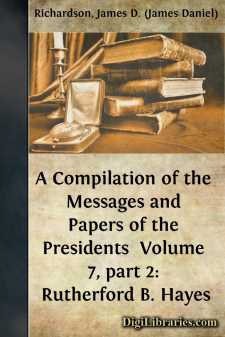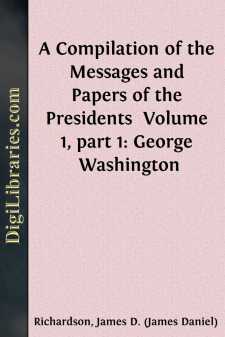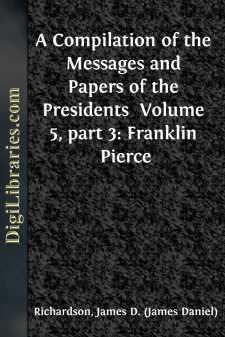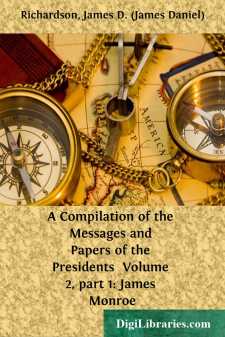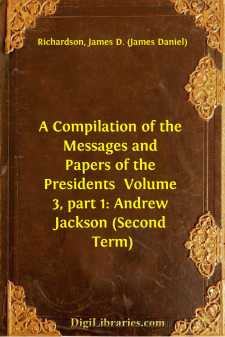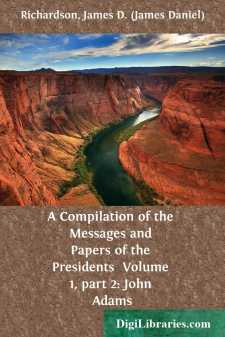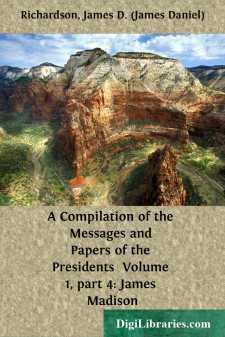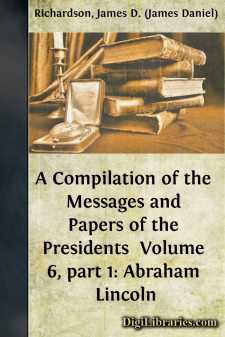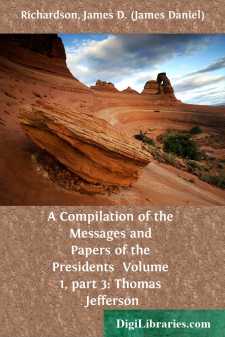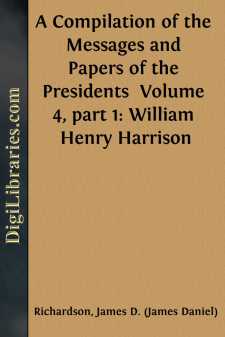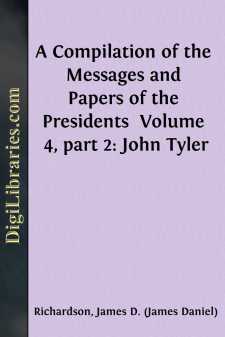Categories
- Antiques & Collectibles 13
- Architecture 36
- Art 48
- Bibles 22
- Biography & Autobiography 813
- Body, Mind & Spirit 142
- Business & Economics 28
- Children's Books 13
- Children's Fiction 10
- Computers 4
- Cooking 94
- Crafts & Hobbies 4
- Drama 346
- Education 46
- Family & Relationships 57
- Fiction 11828
- Games 19
- Gardening 17
- Health & Fitness 34
- History 1377
- House & Home 1
- Humor 147
- Juvenile Fiction 1873
- Juvenile Nonfiction 202
- Language Arts & Disciplines 88
- Law 16
- Literary Collections 686
- Literary Criticism 179
- Mathematics 13
- Medical 41
- Music 40
- Nature 179
- Non-Classifiable 1768
- Performing Arts 7
- Periodicals 1453
- Philosophy 64
- Photography 2
- Poetry 896
- Political Science 203
- Psychology 42
- Reference 154
- Religion 513
- Science 126
- Self-Help 84
- Social Science 81
- Sports & Recreation 34
- Study Aids 3
- Technology & Engineering 59
- Transportation 23
- Travel 463
- True Crime 29
A Compilation of the Messages and Papers of the Presidents Volume 7, part 2: Rutherford B. Hayes
Categories:
Description:
Excerpt
Rutherford B. Hayes
Rutherford B. Hayes was born in Delaware: Ohio, October 4, 1822. His father had died in July, 1822, leaving his mother in modest circumstances. He attended the common schools, and began early the study of Latin and Greek with Judge Sherman Finch, of Delaware. Prepared for college at an academy at Norwalk, Ohio, and at a school in Middletown, Conn. In the autumn of 1838 entered Kenyon College, at Gambier, Ohio. Excelled in logic, mental and moral philosophy, and mathematics, and also made his mark as a debater in the literary societies. On his graduation, in August, 1842, was awarded the valedictory oration, with which he won much praise. Soon afterwards began the study of law in the office of Thomas Sparrow, at Columbus, Ohio, and then attended a course of law lectures at Harvard University, entering the law school August 22, 1843, and finishing his studies there in January, 1845. As a law student he had the advantage of friendly intercourse with Judge Story and Professor Greenleaf, and also attended the lectures of Longfellow on literature and of Agassiz on natural science, pursuing at the same time the study of French and German. In May, 1845, was admitted to practice in the courts of Ohio as an attorney and counselor at law. Established himself first at Lower Sandusky (now Fremont), where in April, 1846, he formed a law partnership with Ralph P. Buckland, then a Member of Congress. In the winter of 1849-50 established himself at Cincinnati. His practice at first being light, continued his studies in law and literature, and also became identified with various literary societies, among them the literary club of Cincinnati, where he met Salmon P. Chase, Thomas Ewing, Thomas Corwin, Stanley Matthews, Moncure D. Conway, Manning F. Force, and others of note. December 30, 1852, married Miss Lucy Ware Webb, daughter of Dr. James Webb, a physician of Chillicothe, Ohio. In January, 1854, formed a law partnership with H.W. Corwine and William K. Rogers. In 1856 was nominated for the office of common pleas judge, but declined. In 1858 was elected city solicitor by the city council of Cincinnati to fill a vacancy, and in the following year was elected to the same office at a popular election, but was defeated for reelection in 1861. After becoming a voter he acted with the Whig party, voting for Henry Clay in 1844, for General Taylor in 1848, and for General Scott in 1852. Having from his youth cherished antislavery feelings, he joined the Republican party as soon as it was organized, and earnestly advocated the election of Frémont in 1856 and of Lincoln in 1860. At a great mass meeting held in Cincinnati immediately after the firing on Fort Sumter was made chairman of a committee on resolutions. His literary club formed a military company, of which he was elected captain. June 7, 1861, was appointed by the governor of Ohio major of the Twenty-third Ohio Volunteers. September 19, 1861, was appointed by General Rosecrans judge-advocate of the Department of the Ohio....


